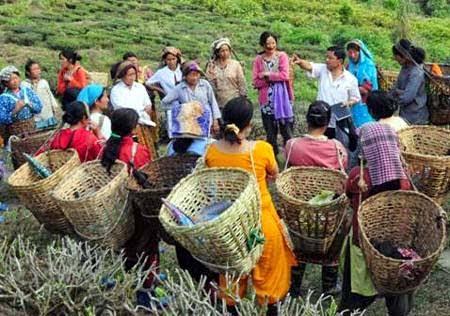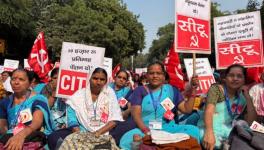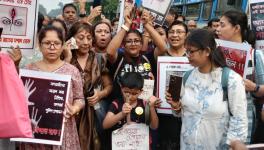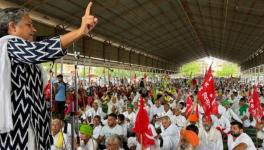Small Victory in A Wider War: 20% Bonus for Darjeeling Tea Workers

Image Courtesy: Indian Gorkhas
In a victory for the Joint Forum of Tea Workers’ Union, thousands of tea labourers in Darjeeling will get a 20% bonus. The demand was agreed to by the West Bengal government and the Darjeeling Tea Association (DTA) on Friday in a tripartite meeting held in Kolkata.
According to the agreement, the bonus agreed upon will be disbursed in two instalments – 60% to be paid in the next 10 days and the rest 40% to be paid before December 15 this year.
The win didn’t come easy for the tea workers across 87 plantation gardens in the Darjeeling hills. The last two months were marked with continuous struggle led by the Joint Forum—an umbrella body of about 29 tea workers’ union. The workers observed gate meetings, go-slow production and relay mass hunger strike among other forms of demonstrations. Earlier this month, on October 4, a 12-hour shutdown was observed in Darjeeling hills demanding a bonus agreement.
While speaking with NewsClick, Saman Pathak, General Secretary of Darjeeling district’s Centre for Indian Trade Unions (CITU) has called for a change in the basic production practices prevailing in the tea plantation industry.
“A 20% bonus is a small victory in a wider war against the systematic exploitation of the tea labourer,” says Pathak, “which has denied the workers their rights to a living wage and decent working and living conditions for years.”
The tea plantation industry in the state has a history of well over 150 years; however, for 4.5 lakh tea workers in West Bengal, minimum wage is something that is yet to be implemented. A tea worker in West Bengal still earns as low as Rs 176 for a day’s labour, which usually extends up to 12 to 13 hours.
In February 2015, a tripartite agreement was reached with Mamata Banerjee’s government agreeing to implement minimum wages. A minimum wage advisory committee was created to review the provisions surrounding minimum wages.
“The process that was supposed to be completed within a six-month period, took more than three years,” Pathak told NewsClick. “And the committee submitted its recommendations in December 2018.”
One year down the line, the report has still not been released by the West Bengal government.
The union has been demanding implementation of the minimum wage standards set by the 15th Indian Labour Conference, which are well-known and universally accepted, he added.
In addition to this, the Joint Forum has been demanding for a provision for a land patta to landless tea garden residents.
According to Pathak, these are the 4th generation tea workers who are still treated as “bonded slaves.” The workers continue to live in staff quarters. They have no home or land to call their own, making their lives exposed to vulnerabilities.
Get the latest reports & analysis with people's perspective on Protests, movements & deep analytical videos, discussions of the current affairs in your Telegram app. Subscribe to NewsClick's Telegram channel & get Real-Time updates on stories, as they get published on our website.























